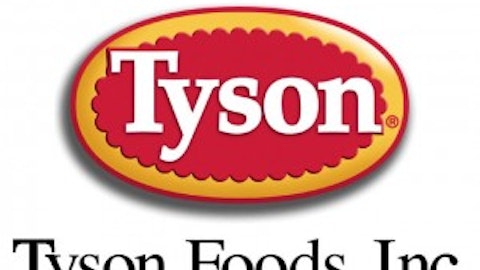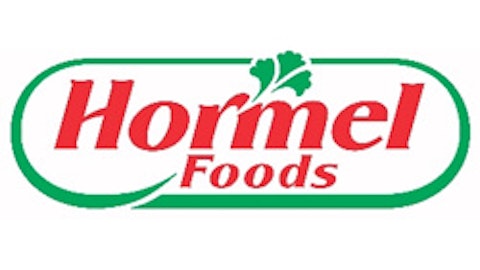There is increasing pressure on Smithfield Foods, Inc. (NYSE:SFD) from Continental Grain, one of its biggest shareholders. Continental Grain has urged Smithfield to consider strategic changes, including the idea to break up the company into three separate companies to further enhance shareholders’ value. In the letter to Smithfield’s board of directors, Continental Grain said that it is essential for the company to hire an independent investment bank to help with strategic alternatives. Since July 2012, the company’s stock price has risen significantly, from $18.40 per share to more than $26 per share. Is Smithfield a buy at its current price? Let’s take a closer look.

Business snapshot
Smithfield Foods, Inc. (NYSE:SFD), founded in 1936, is the biggest global pork processor and hog producer, making different types of fresh meat and packaged meat products. Smithfield has three main business segments: Pork, Hog Production, and International. The majority of its revenue, $11 billion, or 70.5% of its total revenue, was generated from the Pork segment, while the Hog Production segment ranked second, with more than $3 billion in 2012 revenue. Among the three segments, the Port segment also brought the majority of Smithfield’s operating income of $623.7 million, while the operating income of the Hog Production and the International segment were $166 million and $42.8 million, respectively. In the Pork segment, around 54% of the segment’s revenue were from packaged meats’ sales, while fresh pork accounted for 46% of the total segment’s sales.
Continental Grain goes much more active
Continental Grain has been Smithfield’s shareholder for nearly seven years. In its letter, it criticized the current management on Smithfield’s recent poor performance. Since August 2006, Smithfield’s stock price has declined by 26%, while its peers Tyson Foods, Inc. (NYSE:TSN) and Hormel Foods Corporation (NYSE:HRL) have advanced significantly. While Tyson Foods has shot up by 70%, Hormel Foods has increased by more than 130%. During that time, while Tyson and Hormel have paid $429 million and $728 million, respectively, to shareholders in the form of dividends, Smithfield has paid no cash dividends.
Continental Grain suggested several key actions for the company to unlock its hidden potential for its existing shareholders. It believed that Smithfield Foods, Inc. (NYSE:SFD) should be separated into three independent businesses: Fresh pork and packaged meats, Hog Production, and International (mainly in Europe). Among the three segments, while the Hog Production segment was the major drag on its overall Smithfield’s performance, the US processing and packaged meats business is the most valuable business in the company. Continental Grain believed that if this segment were run by experienced management, this segment alone could be worth more than the entire market cap of the company. The International segment has returned very little until recently after more than $1 billion was invested in Europe.




